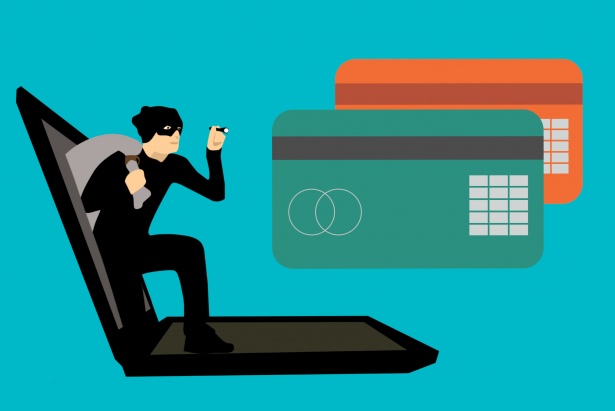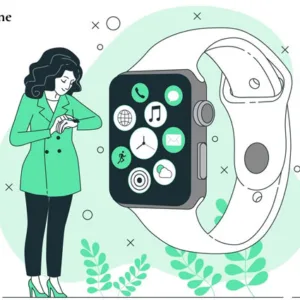Digital transformation has shifted the way all of us handle our work. With the rise in online operations, cybercrimes have grown. Cybercrimes have been around since the invention of the internet, but now the frauds have become so much more sophisticated. All of us spend a lot of time online, be it scrolling through social media or just working online and accessing different websites. All this time that you spend online makes it easier for cybercriminals to attack you. You need to follow secure computing tips that can help you have a more secure browsing experience.
With these top 10 secure computing tips, you can make sure to change your browsing habits. We have compiled these top secure computing tips from experience, and use them to improve the security of your day-to-day online experiences.
Top Personal Cyber Security Tips
1. Keep Your Software Up to Date
Ransomware and spyware attacks are becoming more common for both businesses and consumers. One of the most common security tips that you can follow for reducing ransomware attacks is to update software, this includes all kinds of software such as operating systems and apps.
Keeping your software updated removes all the weak points that hackers can use to access your devices. Here’s how you can get started:
- Turn on automatic system updates for all your devices.
- Keep auto-updates on your web browsers.
- If you use any plugins, then you should keep them up to date.
2. Use Anti-Virus and Firewalls
Antiviruses have been around for a long time and they are needed to fight harmful attacks. Anti-Virus software can block malicious files and viruses that can harm your website. Choose any of the best anti-virus software to secure your device from attackers.
To reduce getting your data attacked, you can also use a Firewall alongside Anti Virus programs. A firewall helps in filtering out cybercriminals, viruses, and other malicious activities. Windows and Mac OS come equipped with their own respective firewalls, if you want a secured internet connection as well, then your router also comes equipped with a firewall.
3. Use Strong Passwords
One of the most common secure computing tips is to use strong passwords for every account you make. Your password is the only thing that keeps hackers out of your sensitive data. To make sure your data is as secure as possible, you need to consider these factors in your passwords:
- Don’t use a random combination of numbers, upper case and lower case letters, and symbols. Instead, use something user-friendly but at least contains 8 characters and a maximum of 64 characters.
- Don’t use the same password over and over again.
- The password should contain at least one lowercase letter, one uppercase, one number, and four symbols.
- Choose something easy to remember, and never use password hints that can be used by cybercriminals to access your information.
- Reset your password when forget it, also keep in mind to update it once every year.
4. Use Multi-Factor Authentication
Almost all the services now come with multi-factor authentication. Multi-factor authentication provides an extra layer of security to the standard password method for logging in. Without two-factor authentication, you just need to write a username and password to log in, but with two-factor authentication, you would be asked for additional detail to log in. If you are securing something very sensitive, then you can opt for more features to authenticate the identity each time you log in.
5. Learn about Phishing Scams
Phishing scams are at an all-time high during this whole pandemic. In a phishing scheme attempt, the cybercriminal or hacker will try to trick you into believing that they are someone else.
Their goal is to trick the users into providing their credentials, clicking on a malicious link, or opening an attachment that infects the users’ data. Once the data is infected, it leads to a ransomware attack, which can lead to millions of dollars worth of losses for small businesses and big businesses.
Here are some things that you should remember about phishing scams:
- Don’t open emails from people you don’t know.
- Try to find out which links are safe and which ones are not, hover your mouse cursor over the link to find out where it leads to.
- Be suspicious of the emails you open, first check where they came from.
- Malicious links can also come from friends if they’ve been infected.
6. Protect Your Personal Identifiable Information
Personally identifiable information is a type of information that can be used by an online hacker to identify or locate a person. Personally identifiable information such as social security numbers contains information such as name, address, phone number, DOB, IP address, location details, and other physical identity data.
You should also be careful about what you put on social media. This world is always on social media, and you should not put every activity of yours on social media. Recheck the privacy settings on all your social media platforms. If you add your home address, birth date, and more personal information then hackers can use that information to their benefit.
7. Use Your Smartphone Securely
Our smartphone is something that can be constantly used to spy on us by hackers. More than 1 million people all over the globe are attacked by cybercriminals on their smartphones by mobile malware. Here are some tips for securing your smartphone devices:
- Create a difficult mobile access password, don’t use something obvious like birthdate.
- Install apps only from trusted sources.
- Keep your devices updated all the time.
- Avoid sharing personally identifiable information over text messages or chat messengers.
- Utilize features like “Find my iPhone” or “Android Device Manager” to make sure you don’t lose your device, or your device doesn’t get stolen.
- Keep backing up your data on the cloud at regular intervals.
Summary: Secure Computing Tips
We hope these personal cybersecurity tips help you understand how to secure your devices and make sure your data stays secure. Follow these tips and be a bit more vigilant on how you handle your data and your personal information to make sure you don’t lose your data.





